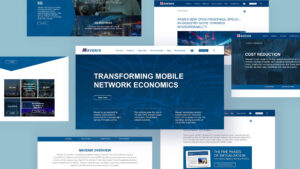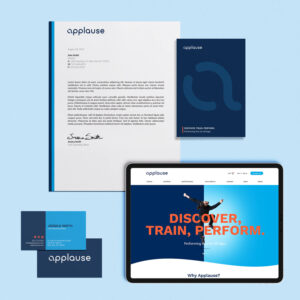In the vast landscape of SEO, backlinks stand out as one of the most vital elements. These links from one website to another serve as endorsements, signaling to search engines that your content is valuable and trustworthy. Let’s explore what backlinks are, why they matter, and how you can effectively build them.
What Are Backlinks?
Our partner, Proper Leap, an SEO agency, is going to walk us through this explanation. Let’s begin. Backlinks, also known as inbound or incoming links, are hyperlinks from one website that lead to a page on another website. They act as votes of confidence, suggesting that the content on the linked page is credible and useful. For example, if a renowned industry blog links to your article, it signals to search engines that your content is authoritative.
Why Do Backlinks Matter?
- Improved Search Engine Rankings: Search engines like Google consider backlinks as key factors in determining a website’s ranking. Pages with a high number of quality backlinks tend to rank higher in search results.
- Increased Organic Traffic: Higher rankings lead to more visibility and, therefore, more organic traffic. When your pages rank well, they are more likely to be clicked on by users searching for relevant information.
- Enhanced Credibility and Trust: When reputable websites link to your content, it enhances your credibility and trustworthiness, both in the eyes of search engines and users.
- Referral Traffic: Backlinks can drive traffic from the linking site directly to yours. If a popular blog links to your article, their audience is likely to visit your site, increasing your traffic and potential for conversions.
How to Build Backlinks
Building backlinks is a strategic process. Here are some effective methods to acquire high-quality backlinks:
- Create High-Quality Content
- Informative Blog Posts: Write comprehensive, well-researched blog posts that provide value to your readers. Quality content naturally attracts backlinks.
- Infographics: Create visually appealing infographics that present data or insights in an easy-to-digest format. Infographics are highly shareable and often linked to by other websites.
- Case Studies and Research Reports: Conduct original research and publish detailed case studies. These types of content are frequently cited by other websites, earning you valuable backlinks.
- Guest Blogging
- Guest Posts: Writing guest posts for reputable blogs in your industry is a great way to earn backlinks. Ensure your guest posts are high-quality and include a link back to your site.
- Outreach Strategy: Identify popular blogs and websites in your niche, and pitch guest post ideas that would be valuable to their audience. Personalize your outreach emails to increase your chances of acceptance.
- Outreach and Networking
- Connect with Influencers: Build relationships with influencers and thought leaders in your industry. Share your content with them and encourage them to link to it if they find it valuable.
- Broken Link Building: Find broken links on other websites and suggest your content as a replacement. Tools like Ahrefs or SEMrush can help you identify broken links in your niche.
- Content Promotion
- Social Media: Promote your content on social media platforms to increase its visibility. The more people see your content, the higher the chances of earning backlinks.
- Email Newsletters: Share your content with your email subscribers and encourage them to share it within their networks.
- Directories and Listings
- Submit your website to reputable online directories and business listings. Sites like Yelp, Yellow Pages, and industry-specific directories can provide valuable backlinks.
- Local SEO: If you have a local business, ensure your site is listed on local business directories and Google My Business.
- Q&A Sites and Forums
- Engage in communities like Quora, Reddit, and industry-specific forums. Provide valuable answers and include links to relevant content on your site where appropriate.
Places to Create Your Own Backlinks
Here are some platforms and methods where you can proactively create backlinks:
- Medium and LinkedIn Articles: Write articles on Medium and LinkedIn that link back to your website. These platforms have high domain authority, which can benefit your SEO.
- Industry-Specific Forums: Participate in forums related to your industry. Engage in discussions and provide helpful insights, including links to your content when relevant.
- Content Aggregators: Submit your content to aggregators like Scoop.it or Flipboard. These platforms can help increase the reach of your content and earn backlinks.
- Press Releases: Distribute press releases through services like PRWeb or PR Newswire. Ensure the press releases include links to your website.
Conclusion
Backlinks are an essential component of a robust SEO strategy. By understanding what they are, why they matter, and how to build them effectively, you can significantly enhance your website’s visibility, credibility, and organic traffic. Remember, quality is more important than quantity when it comes to backlinks. Focus on creating valuable content and building genuine relationships in your industry, and the backlinks will follow.
For more insights and tips on boosting your SEO through backlinks, check out the latest industry trends and strategies on Moz and Search Engine Journal.



















